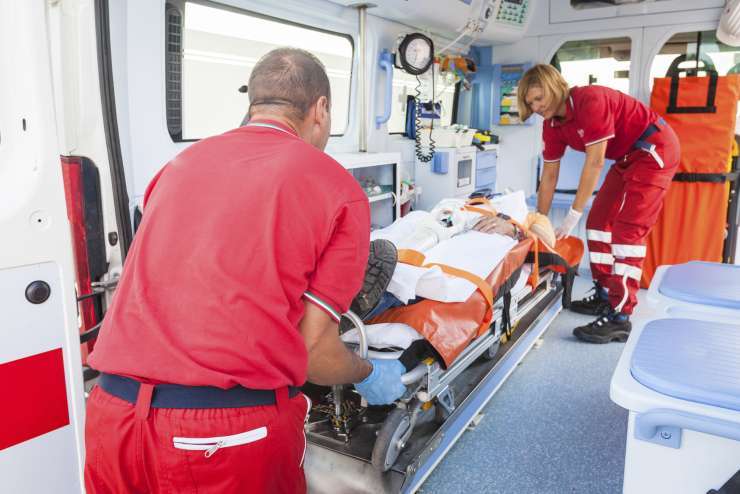In a recent Connecticut truck accident that involved two 18-wheeler vehicles there were no deaths, but I95 was shutdown for hours while crews cleaned up a ruptured gas tank and provided medical attention to one of the drivers. These types of accidents are generally quite rare, but when they do occur there often is a greater likelihood that at least one of the drivers in a vehicle are going to be injured.
It is important for all of us who share the road with the nation’s truckers to be completely aware of the safety measures we should take in order to keep ourselves and our passengers out of harm's way. While the accident mentioned above was between two tractor trailer vehicles, it is still important for us, who drive passenger vehicles, to remember the safety measures that are necessary to take when sharing the road with these giant vehicles.
As the roads in Connecticut are often filled with these vehicles that are moving at a considerable speed and with limited ability to slow down, it is critical for all of us to know and understand the different safety steps that are necessary to take when sharing the road with a bigger vehicle. It is different to be sharing the road with a passenger vehicle then it is to be sharing it with a commercial truck. That being said, there are things you can do as the driver that will keep yourself safe, even when sharing the road with these bigger vehicles. Take these three steps to keep yourself and your passengers safe while sharing the road.
-
Keep your distance. While there is no agreed upon hard and fast rule for how much distance you should leave between yourself and a semi-truck, many experts believe that if you are traveling at 40 MPH you should leave one second of time for every foot of your car. This can be a little bit of a confusing way to put it, but it is the best way to keep yourself safe when behind the wheel. You want to give yourself and the truck in front of you plenty of time and distance in the event that either vehicle needs to come to a fast stop. If you’re unsure of exactly the distance, you should do what makes you feel comfortable and err on the side of a longer distance.
-
Do not pass on the right and if you’re passing on the left make sure you do so quickly and without any delay. You should always be able to see the driver in the mirror of the vehicle, if you cannot see her/him, you cannot be seen. Once you have passed the vehicle you will want to make sure you are able to see the front of the truck in your rearview mirror before switching back into the lane in front of the truck.
-
Do not travel in a tractor trailer driver's blind spot. You should avoid driving alongside a tractor trailer unless you are passing the vehicle. If you are not passing the vehicle then it is a good idea to not travel on the side of the vehicle. If you are driving on the side of a tractor trailer you should make sure that you are able to see the driver in her/his side mirror which can give you comfort in knowing that you can be seen.
Sharing the road with a tractor trailer can be scary at times, especially at night or when the weather is bad. If you do your best to keep your distance from the truck and make sure you don't end up in the driver’s blind spots you will be doing yourself a favor. Taking these safety steps will go a long way in avoiding a Connecticut truck accident and keeping you and your passengers safe even while sharing the road with these larger than life vehicles.
If you are injured in an accident that involves you in a passenger vehicle and an 18-wheeler vehicle, you may need to speak with an attorney who has experience with this type of situation. These accidents can be complicated to get to the bottom of and you will need someone who knows how to interact with these trucking companies. Contact our office and one of our experienced attorneys will speak with you about your situation and work with you to protect your long-term interests.




